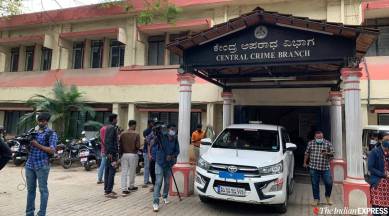Stay updated with the latest - Click here to follow us on Instagram
3 arrested for cheating cab aggregators by creating fictitious drivers and trips in Bengaluru
When a driver completed 30 trips, they became eligible for incentives, which the suspects exploited by not depositing the money with the company. Instead, they divided the ill-gotten funds among themselves.

The Central Crime Branch (CCB) Bengaluru claimed to have uncovered a racket involved in manipulating the incentive system provided by cab aggregators by providing false ridership data to deceive them.
The police on Tuesday arrested a former vendor and two of his aides who deceived the system and suspect they earned Rs 10 lakh fraudulently in the last one year.
monthly limit of free stories.
with an Express account.
The arrested men have been identified as Manoj Kumar, Sachin and Shankar, who cheated aggregators Uber and Rapido by generating fake trips using pre-activated SIM cards. The police also found that the accused generated fake online trips using online documents and Google Maps.
They have seized 1,055 sim cards, 15 mobile phones, four laptops, one computer, and one biometric device from the accused, as part of busting a racket on pre-activated SIM cards.
While Manoj Kumar was a vendor for the two aggregators, Sachin worked in the loan section of a finance firm, and Shankar was a SIM card distributor.
According to the police, Kumar was officially on the vendor list of the aggregator firms but was not providing any services.
The fraud was exposed after a complaint was filed by Shravana Kumar, who noticed suspicious activity on Manoj’s laptop, raising doubts about his involvement in fraudulent activities. While investigating the complaint, the police conducted a search at Manoj’s store and uncovered the racket.
They collaborated to generate illicit profits by fabricating data and uploading it to the aggregators’ websites, falsely claiming that the cabs and bikes were actively engaged in trips.
This allowed them to earn incentives meant for completing a certain number of trips. To deceive the aggregators, they created the illusion of cash payments for cab and bike taxis.
The accused played different roles in the operation, acting as customers, drivers, and vendors. They used their phones to book trips, with a registered “driver” accepting the trip using a different SIM card. The system had a test feature that simulated the movement of the vehicle from the pickup point to the drop-off location, further enhancing the deception.
Kumar was involved in attaching cars to cab aggregators by creating fictitious trips using software applications and also generating fake drivers and captains. Kumar created ‘fake drivers’ through Aadhaar cards and residential details of those who applied for loans with Sachin’s finance firm.
The police said Shankar would issue SIM cards in the name of these ‘fake drivers and riders’. Kumar would later show that he had engaged these drivers and riders in aggregator services and the SIM cards would act as contact numbers for them.
When a driver completed 30 trips, they became eligible for incentives, which the suspects exploited by not depositing the money with the company. Instead, they divided the ill-gotten funds among themselves.
The police have booked the three men under various sections of the Indian Penal Code related to cheating and forgery, as well as the Indian Telegraph Act and Information Technology Act.